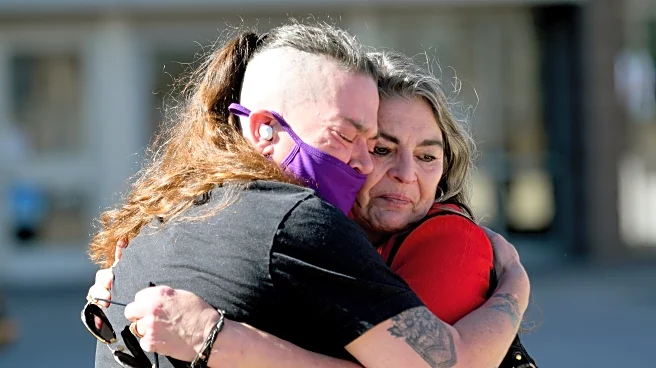What's Happening?
Hamas is actively engaging with Turkey and Egypt to stabilize the situation in Gaza, potentially signaling a willingness to make arms concessions. This diplomatic maneuvering comes as the United States
is advocating for a United Nations-backed ceasefire and crisis management plan. A significant aspect of these discussions involves the Rafah tunnels, which are seen as a critical test for the success of diplomatic efforts. The ongoing conflict has seen skirmishes near the 'yellow line' in Gaza, with the U.S. attempting to mediate a disarmament of Hamas. Israel remains skeptical of Hamas' intentions, particularly regarding their willingness to disarm through diplomatic means.
Why It's Important?
The involvement of regional powers like Turkey and Egypt in the Gaza ceasefire talks highlights the complex geopolitical dynamics at play. The U.S.'s push for a UN-backed ceasefire underscores its strategic interest in stabilizing the region and preventing further escalation. Successful diplomacy could lead to a reduction in violence and a more stable environment in Gaza, benefiting civilians and potentially paving the way for longer-term peace initiatives. However, the skepticism from Israel regarding Hamas' intentions suggests that achieving a lasting resolution will be challenging. The outcome of these talks could significantly impact regional stability and U.S. foreign policy in the Middle East.
What's Next?
The next steps involve continued diplomatic discussions between Hamas, Turkey, Egypt, and the U.S. The focus will likely remain on the Rafah tunnels and the broader implications of arms concessions by Hamas. The international community will be watching closely to see if these talks can lead to a sustainable ceasefire. Potential reactions from Israel and other regional stakeholders will also be critical in shaping the future of the conflict and the prospects for peace.
Beyond the Headlines
The diplomatic efforts in Gaza could have broader implications for regional alliances and the balance of power in the Middle East. The involvement of Turkey and Egypt may influence their roles as regional mediators and impact their relationships with other countries, including the U.S. and Israel. Additionally, the success or failure of these talks could affect the credibility of international diplomatic efforts in conflict resolution.









